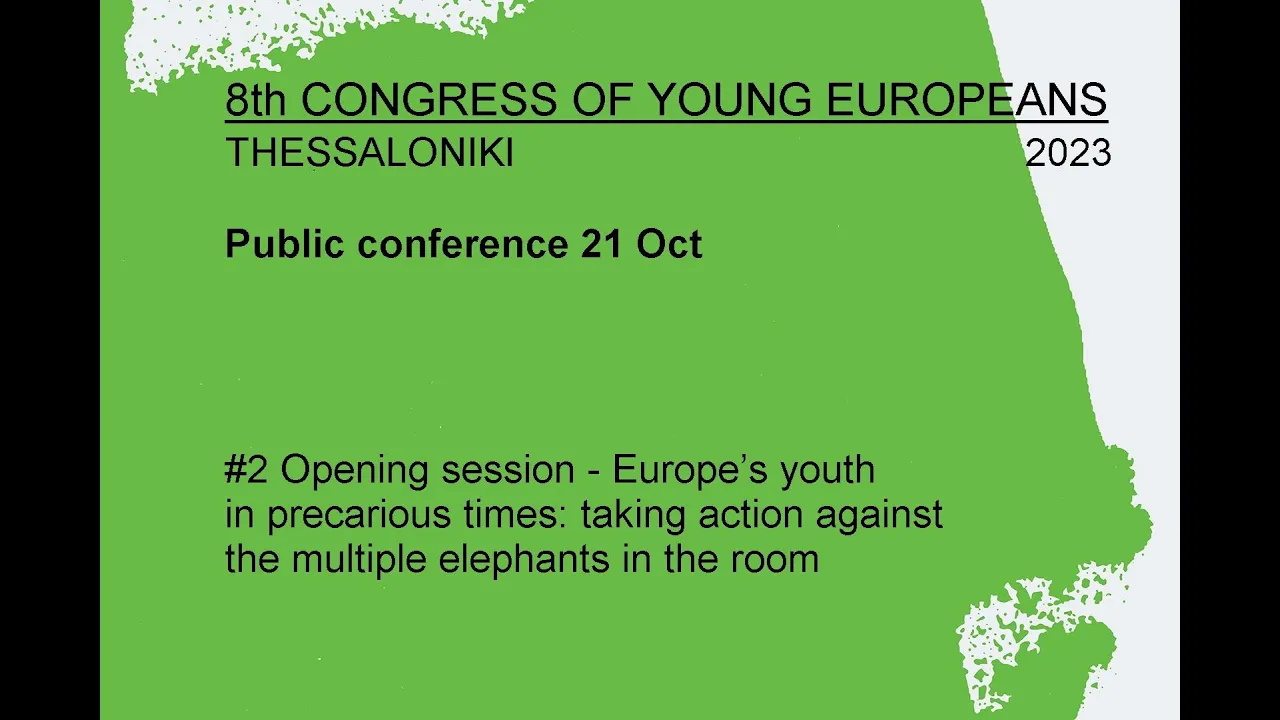Independence Days #2 Europe’s Youth in precarious times: action against the elephants in the room - Heinrich Boell Foundation - Office Thessaloniki
 Watch on YouTube
Watch on YouTube
Independence Days #2 Europe’s Youth in precarious times: taking action against the multiple elephants in the room
The opening session entitled ‘Europe's youth in precarious times: taking action against the multiple elephants in the room’ focused on mapping the complex and interconnected challenges to independent living for young people, as well as on possible ways in which these could be overcome. To begin, Jan Philipp Albrecht, Chair of the Heinrich Böll Foundation, noted that challenges such as the climate crisis, digital transformation and the future of work are accelerating structural changes at a European level, but most political parties are slow to understand them. At the same time, he pointed out with a touch of optimism that the number of young members of the European Parliament has been increasing in recent years, which may help the parties to understand these challenges more quickly. Furthermore, in his second speech, he identified that the allocation of resources does not only depend on budgetary constraints, but that this is a matter of priorities related both to the economic model of our societies and to the need to support infrastructures that involve local communities in the implementation of projects. Then Robbie Stakelum, Head of Policy and Advocacy at the Social Platform, pointed out that the rate of poverty reduction is not moving fast enough to meet the ambitious EU targets, while rates of energy poverty, economic stress and material deprivation are increasing. He also acknowledged that there are relevant policies at European level, but that many of them are often not implemented in the right way, as is the case with basic income, which in many countries is below the poverty line or excludes youth, or their impact is not properly measured. Finally, he stressed that a just transition is not just if it does not include social issues and youth at European and national level – in a meaningful way and not as tokenism. Taking the floor, Rareș Voicu, Board Member of the European Youth Forum, added that one in four young Europeans are at risk of poverty and 49% of them face problems in accessing mental health services. Furthermore, since the European debt crisis, it is observed that 45% of youth do not trust governments, are disillusioned with existing policies and are driven to radicalisation or non-participation in political processes. Therefore, he suggested that for youth there should be minimum proper conditions for access to decisions and a cross-cutting approach combining rights with minimum income. Finally, Anna Iafisco, Policy Officer at Eurocities, said that Gen Z and Millennials are facing a multiple crisis, adding housing and mental health to what was already said. Focusing on housing, she noted the lack of an adequate regulatory framework for short-term rental platforms and the shortage of social/affordable housing. She also said that due to limited municipal budgets local authorities cannot contribute adequately to mitigating these problems, while the quality of housing in urban centres is increasingly declining for a large proportion of youth. All these are leading to a new wave of brain drain, which in turn reduces the economic productivity indices of cities. Based on the above, she suggested increasing resources for Green Transition and working with intermediaries and experts (e.g. social workers) to involve vulnerable groups in participatory processes, as in the example of participatory budgeting in Bologna, Italy.